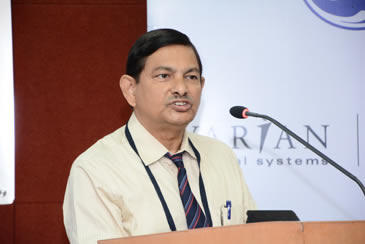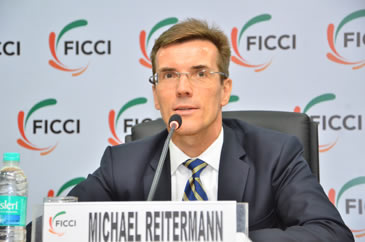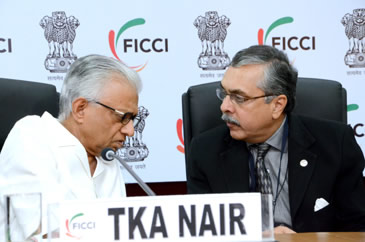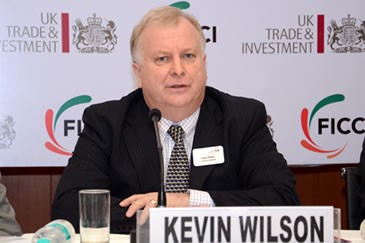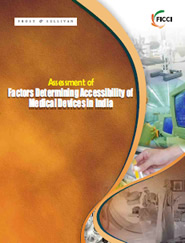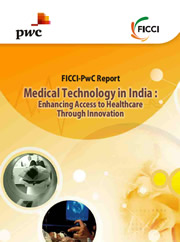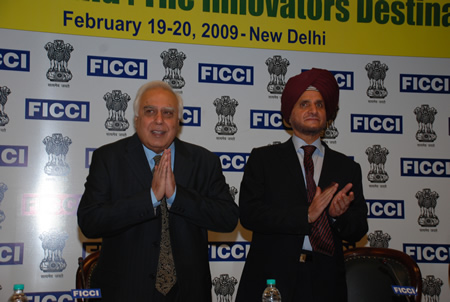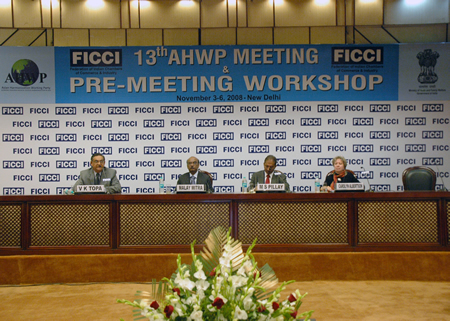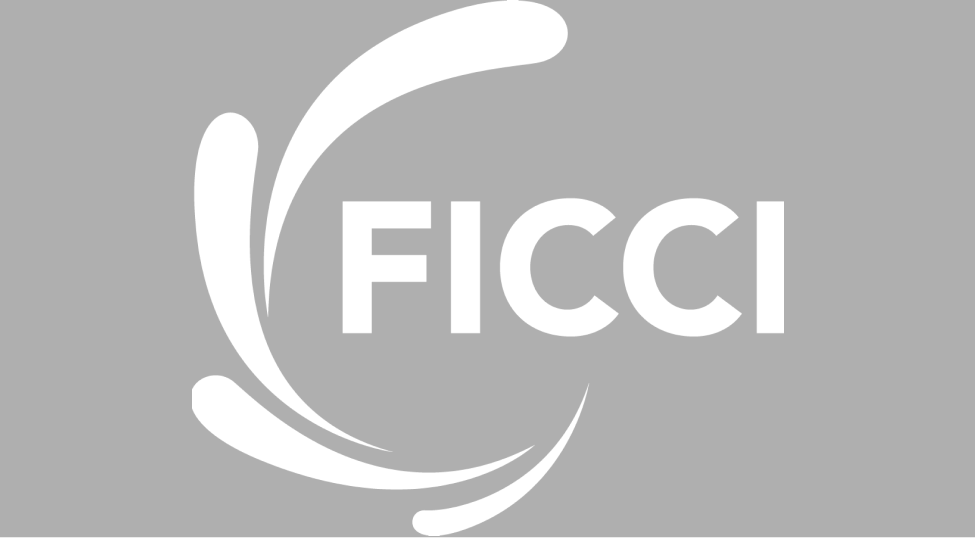The FICCI Medical Devices and Equipment sector is taking up the following initiatives for the promotion of the sector:
- Launch of the FICCI-F&S Report which is based on the assessment of factors determining accessibility of medical devices in India.
- FICCI-PwC Report released in the year 2010 is a study about the Medical Technology in India and how access can be enhanced to Healthcare through innovation.
The FICCI Medical Devices and Equipment sector is taking up the following initiatives for the promotion of the sector:
- Launch of the FICCI-F&S Report which is based on the assessment of factors determining accessibility of medical devices in India.
- FICCI-PwC Report released in the year 2010 is a study about the Medical Technology in India and how access can be enhanced to Healthcare through innovation.
- We look forward to the Health IT and Telemedicine programme in the year 2012 to deliberate the scope and role of Health IT, with Indian Medical Technology in the backdrop.
- FICCI-Deloitte will soon come up with the Thought Paper on Indian Medical Electronics Industry and its future prospects.
- 4th International Conference on Medical Electronics to be held in 2013 would aim at promoting the Medical Technology sector in India.
Team Leader
Praveen K Mittal
Senior DirectorTimeline
Need to harness India's vast potential in the pharmaceutical & medical devices sectors: Dr Mansukh Mandaviya
Bhagwanth Khuba, Union Minister of State for Chemicals & Fertilizers presents India Pharma and India Medical Devices Awards 2022
Need to ramp up India's triple advantage of cost, quality and scale in the pharma sector to next level: Secretary, Department of Pharmaceuticals
Govt committed to two important aspects of healthcare ecosystem- `Heal by India` and Heal in India`: Mansukh Mandaviya
Need to reduce import dependence of India and promote domestic manufacturing: Mansukh Mandaviya
3rd India-Japan Medical Products Regulatory Symposium "Pharmaceuticals & Medical Devices"
India Medical Device 2018
22nd AHWP Annual Meeting
FICCI suggests way forward through a 4 Pillars Medical Devices Policy
International Exhbition & Conference on Medical Device Sector
Indian Medical Device Industry seeks Government's attention on upcoming Medical Device Rules 2016
Inclusion of coronary stent in National List of Essential Medicine is weakening the industry sentiment further
New Medical Device Rules to be notified at the earliest
India and Japan to accelerate collaboration for medical products through Joint Regulators
Medical Devices & Equipment Industry Seeks Immediate and Complete Roll Back of Import Duty Increase to reduce patient inconvenience and cost
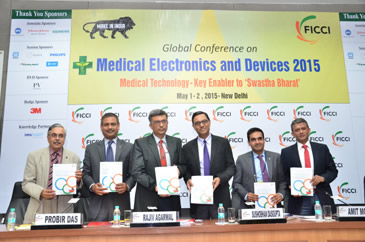
Global Medical Electronics & Devices Conference: Medical Technology - Key Enabler to 'Swastha Bharat'
India-Japan Business on Medical Equipment and Services

FICCI Roundtable on Challenges and Opportunities in the Medical Devices Sector in India
FICCI-Frost & Sullivan Report titled "Assessment of Factors determining Accessibility of Medical Devices in India"
FICCI-Deloitte Consulting - Thought paper on Indian Medical Electronics Industry: Outlook 2020
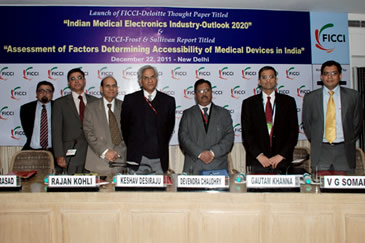
Launch of FICCI-Deloitte Thought Paper titled "Indian Medical Electronics Industry-Outlook 2020" and FICCI-Frost & Sullivan Report titled "Assessment of Factors determining Accessibility of Medical Devices in India"
FICCI Recommendations on Medical Electronics
FICCI Medical Electronics Forum Outlines 13-Point Strategy to Shape Industry's Future
FICCI Medical Electronics Forum Outlines 13-Point Strategy to Shape Industry's Future
India Offers Greater Medical Technology Market Opportunity than Even Advanced Nations; Industry Set to Grow
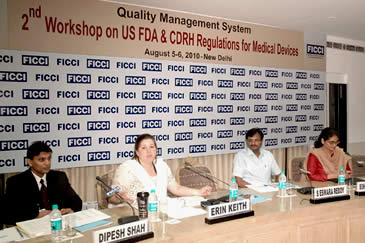
Quality Management System 2nd Workshop on USFDA & CDRH Regulations for Medical Devices
Centre to Enact Law to Regulate Medical Devices after Consultation with States; Bill Likely In Winter Session: Dinesh Trivedi
Country May Lose a Fifth of its Current GDP Due to Productivity Loss between 2005-2015
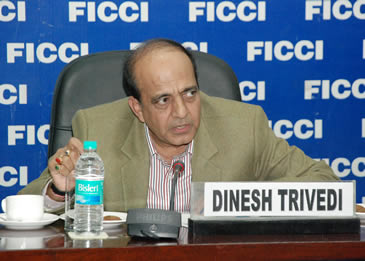
Roundtable discussion with Hon’ble Minister of state for Health & Family Welfare, Shri. Dinesh Trivedi
Tech Awareness Meet on Quality Assurance & Radiation Safety
Workshop on US FDA & CDRH Regulations for Medical Devices



